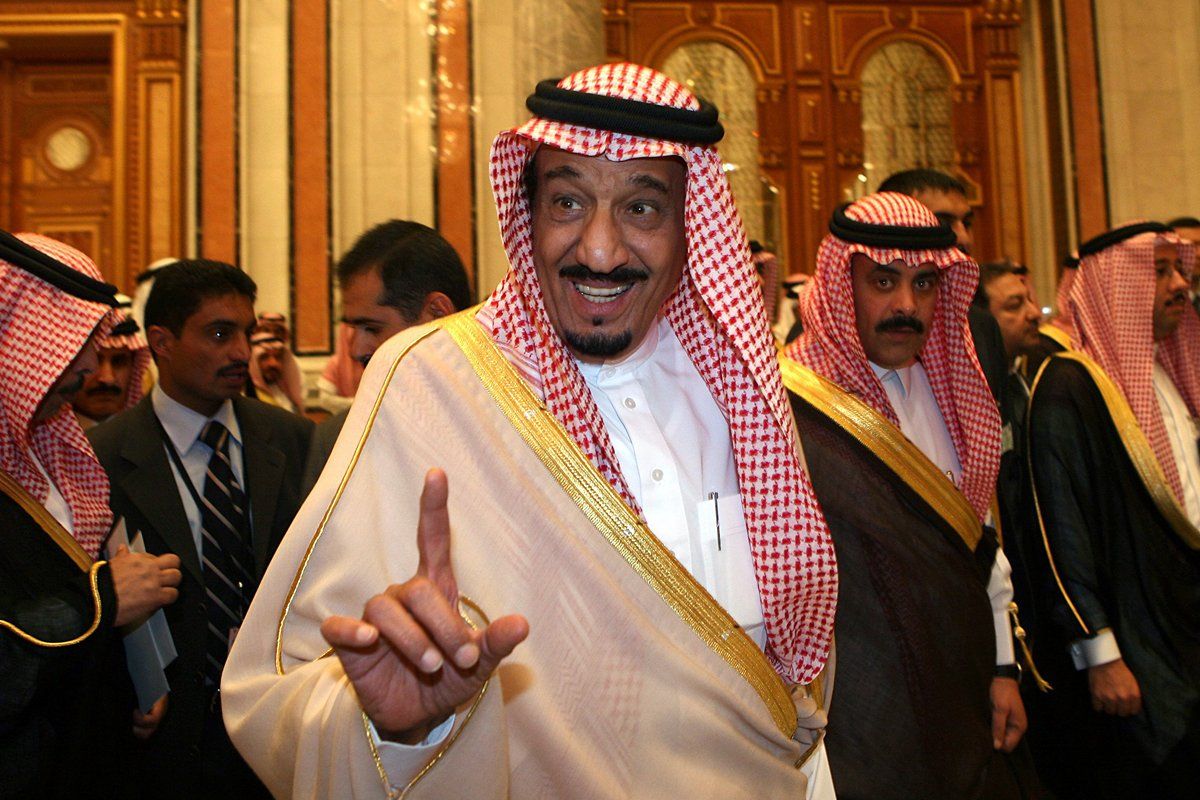
The redoubtable Karen Elliott House, who is soon to publish a new book on Saudi Arabia, recently wrote a column for The Wall Street Journal about the death of Crown Prince Nayef bin Abdul Aziz ibn Saud, the aged heir to the Saudi throne. Describing the perilous future of the kingdom, which is still ruled by 89-year-old King Abdullah, she hit the necessary notes of caution: that 40 percent of the population lives on less than $1,000 a month, and that there is an epidemic of unemployment among the young. Half the population is under 25, while the average age of the ruling princes is about 80.
House said the geriatric nature of the regime reminded her of the Soviet Union in its twilight years, when rule was passed from one decrepit old man to another. Except in this case, it's a family affair. Since the death in 1953 of the fecund Abdul Aziz ibn Saud, founder of the realm that bears his name, every one of its monarchs has been one of his sons. And that pattern is likely to go on until the grim reaper leaves no alternative but the next generation, or the next after that—or something new and uncertain. All of which means, according to House, that when we look at the rapid and peaceful arrangement of succession that's just taken place in this absolutely vital American ally, it's "the illusion of stability."
Maybe we in the West should take what we can get. The Arab world today, worn down by the uncertainties of the revolutions that started erupting in late 2010, offers fewer and fewer prospects of stability, even of the illusory kind. In the first countries where dictators toppled, Tunisia and Egypt, power is still up for grabs. And in Egypt especially, the less-than-democratic forces, the Islamists and the military, are doing most of the grabbing.
Yemen's feeble central government is at war in several regions. Syria has sunk into brutal, insoluble chaos and threatens to break apart. Iraq is still very shaky, notwithstanding the trillion-plus dollars and thousands upon thousands of lives lost in America's experiment with Arab nation-building.
So a little stability of any kind isn't such a bad thing. And if we ask the basic question—whether Saudi Arabia, the world's biggest oil exporter, can stay on a course of peaceful transition from one ruler to another for the next five or even the next 10 years—the answer almost certainly is: yes.
One reason is that the monarchy is so autocratic and so self-protective that it can make quick, firm decisions when it thinks its future may be at stake. King Abdullah, who set up the royal Allegiance Council in 2006 to rule on questions of succession, has found the panel fractious and indecisive in past discussions. At a critical moment after the death of an earlier crown prince, one theoretically eligible brother who had never showed any particular political or administrative skill put himself forward largely on the basis of seniority. He was overruled, and Nayef got the position. After Nayef died, Abdullah didn't even bother to convene the council before naming the 76-year-old Salman bin Abdul Aziz as heir apparent.
Salman certainly has management experience. Now minister of defense, he previously served as the governor of Riyadh, the Saudi capital, for 48 years. He carefully courted the conservative Islamists upon whom the monarchy relies, in part, for its legitimacy. And he comes from the most powerful subgroup of the founder's plethora of sons: the seven boys born to the same mother, Hassa al-Sudairi.
"Everyone knew Salman would be the choice," one Saudi close to several senior princes told me.
The next in line behind Salman has not been selected, but there is no great rush on that score. Remarkable as it may sound, there remain several sons of the founder from whom to choose. Among them are: Ahmad, 71, the youngest of the Sudairis, who is the new minister of interior; Sattam, 70, who succeeded Salman as governor of Riyadh; and Muqrin, 67, a close adviser to the king and the head of the Saudi intelligence apparatus.
Of course any time the issue of succession comes up, the first question asked in the press is when the crown will be passed, at last, to the next generation—or even the generation after that, since several of the founder's grandsons are older than the youngest of his sons. Certainly that could be a divisive, even brutal process. But as Simon Henderson, a skeptic, wrote for Foreign Policy, "The House of Saud has yet to meet a problem it doesn't want to kick down the road." If by doing that it can—for even a few more years—keep the kingdom on an even keel in the Arab world's sea of troubles, then that is no small achievement.
Uncommon Knowledge
Newsweek is committed to challenging conventional wisdom and finding connections in the search for common ground.
Newsweek is committed to challenging conventional wisdom and finding connections in the search for common ground.





